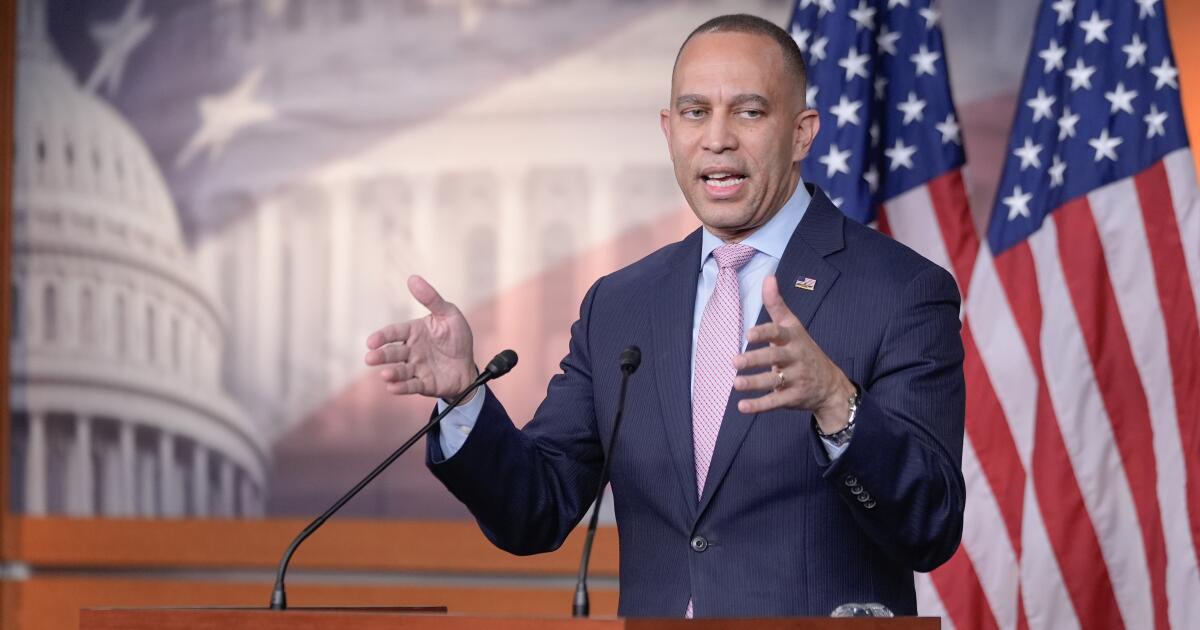WNBA and players union will not extend CBA deadline
The WNBA and its players union will not agree to another extension of the collective bargaining agreement after the deadline passes Friday night, WNBPA vice president Breanna Stewart said.
That does not mean players will strike or the league will lock them out. Stewart told reporters Thursday at a practice for the Unrivaled three-on-three league that players would continue to negotiate in good faith.
With the deadline just before midnight Friday, the league wouldn’t confirm that the sides won’t reach an extension. A spokesman did say the league would “continue to negotiate in good faith with the goal of reaching a deal as quickly as possible.”
“Our focus remains on reaching an agreement that significantly increases player compensation while ensuring the long-term growth of the business,” a spokesperson said.
The league and the players had two previous extensions and met several times this week. Any stalled negotiations could delay the start of the season. The last CBA was announced in the middle of January 2020, a month after it had been agreed to.
It easily could take two months from when a new CBA is reached to get to the start of free agency, which was supposed to begin this month.
While a strike or lockout isn’t imminent, both sides could change their viewpoints.
Stewart said calling a strike is “not something that we’re going to do right this second, but we have that in our back pocket.” The league hasn’t been considering a lockout, according to a person familiar with the decision. The person spoke to the Associated Press on condition of anonymity because of the sensitive nature of the negotiations.
As of Thursday, the sides remained far apart on many key issues, including salary and revenue sharing, and it seems unlikely a deal could be reached before Friday’s deadline.
Revenue sharing a sticking point in talks
The league’s most recent offer last month would guarantee a maximum base salary of $1 million that could reach $1.3 million through revenue sharing. That’s up from the current $249,000 and could grow to nearly $2 million over the life of the agreement, a person with knowledge of the negotiations told AP. The person spoke on condition of anonymity because of the sensitive nature of the negotiations.
Under the proposal, players would receive in excess of 70% of net revenue — though that would be their take of the profits after expenses are paid. Those expenses would include upgraded facilities, charter flights, five-star hotels, medical services, security and arenas.
The average salary this year would be more than $530,000, up from its current $120,000, and grow to more than $770,000 over the life of the agreement. The minimum salary would grow from its current $67,000 to approximately $250,000 in the first year, the person told the AP.
The proposal also would pay young stars like Caitlin Clark, Angel Reese and Paige Bueckers, who are all still on their rookie contracts, nearly double the league minimum.
The union’s counter proposal to the league would give players around 30% of the gross revenue. The players’ percentage would be from money generated before expenses for the first year and teams would have a $10.5-million salary cap to sign players. Under the union’s proposal, the revenue sharing percent would go up slightly each year.
Union wants expansion fees included; league saying no
The union feels that the $750 million in expansion fees that the league just received with the addition of franchises in Cleveland, Detroit and Philadelphia by 2030 should be considered revenue and included in projections. The league says that the money actually goes to all the current teams to make up for the future money they’ll be losing by dividing the total revenue by more franchises.
Other major sports leagues like the NBA, NHL and NFL don’t include expansion fees in their revenue-sharing structures. Major League Baseball’s salary structure is not tied to its revenue, so expansion fees don’t matter.
League wants players to pay for own housing
With the potential new minimum salary at approximately $250,000, the WNBA has said that like most every other pro league, players should pay for their own housing.
The union’s stance is that teams should continue to pay for players’ housing.
Why stalled negotiations could delay the season
An extended delay in getting a deal done could cause a number of problems, specifically getting the season started on time or even played for several reasons. There are several factors that indicate that time is near:
- Free agency: With nearly all the veterans free agents this offseason, this will be the biggest year in the league’s history as far as potential movement. Free agency was supposed to start this month. However, once a new CBA is reached, it could take both parties two months to get free agency started.
- Revenue-generating events could be delayed: The release of the schedule has been delayed. In the past the league tried to get it out before the holidays so teams could sell tickets. With so many players potentially changing teams as free agents, new merchandise wouldn’t be able to be sold.
- Expansion draft: With Portland and Toronto entering the league this year, an expansion draft has to be held. Last year when Golden State came into the WNBA, a draft was held in December. Teams need to figure out who they will be protecting from being selected in the draft, and that is made more complicated because of all the free agents.


